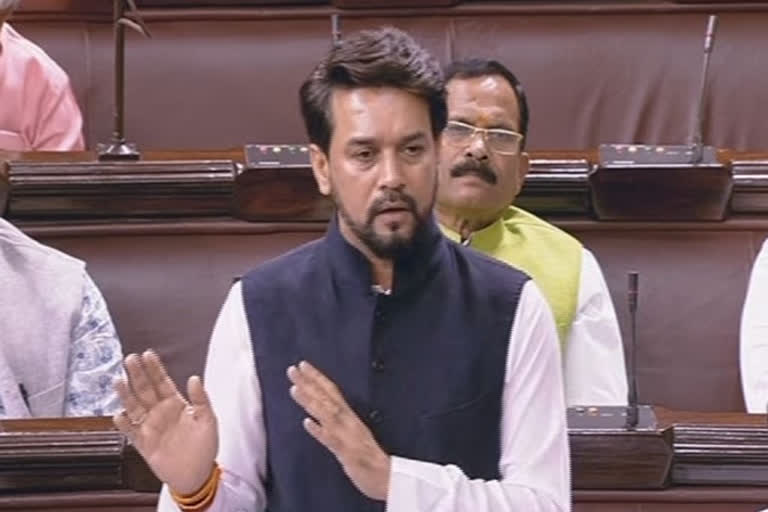New Delhi: Parliament on Monday unanimously passed the Banning of Unregulated Deposit Schemes Bill, 2019, which seeks to put in place a mechanism by which poor depositors will get back their hard-earned money.
The Rajya passed with voice vote the bill which would save gullible investors from Ponzi schemes.
The Lok Sabha had passed the bill on July 24, 2019.
The Banning of Unregulated Deposit Schemes Bill, 2019 replaced the Ordinance on the same.
Replying to a debate on the Bill, Minister of State for Finance Anurag Singh Thakur said the Bill would protect the hard-earned money of the poor people.
He said, "I urge all members to pass the bill."
Read More: India's forex reserves hits record high of USD 430 billion
The minister said the government had constituted an inter-ministerial group to address gaps in existing legislation. The recommendations include a new central law to tackle unregulated deposit schemes.
The Bill is part of the government's effort to bring back money looted by some high and mighty people, he said during a debate on the maiden Bill piloted by him.
The Bill states that the first claim on the recovered money will be of depositors and the proposed legislation also has some exclusion including money collected by real estate firms and from friends and relatives.
The bill will give power to both central and state governments to frame rules, he said, adding 978 cases have been identified so far and of this 326 are in West Bengal.
The bill seeks to help tackle the menace of illicit deposit taking activities in the country, which at present are exploiting regulatory gaps and lack of strict administrative measures to dupe poor and gullible people of their hard earned money, according to the government.
The banning of Unregulated Deposit Scheme Bill, 2018 was considered by the Lok Sabha in February and after discussion, the same was passed.
However, before the same could be considered and passed in the Rajya Sabha, the House was adjourned sine die on the same day.
The bill seeks to provide a comprehensive mechanism to ban the unregulated deposit schemes, other than deposits taken in the ordinary course of business, and to protect the interest of depositors.
The legislation has adequate provisions for punishment and disgorgement or repayment of deposits in cases where such schemes nonetheless manage to raise deposits illegally.
The statement of Objects and Reasons of the bill seeks to put in place a mechanism by which depositors can be repaid without delay by attaching assets of the defaulting establishments.
It also provides that its provisions will not apply to deposits taken in the ordinary course of business in order to ensure that various entities are able to take deposits in their ordinary course of business without any difficulty.
The bill seeks to ensure that no hardship is caused to genuine businesses, or to individuals borrowing money from their relatives or friends for personal reasons or to tide over a crisis.
The legislation contains a substantive banning clause which bans deposit takers from promoting, operating, issuing advertisements or accepting deposits in any unregulated deposit scheme.
No deposit taker shall directly or indirectly promote, operate issue any advertisement soliciting participation or enrolment in or accept deposits in pursuance of an unregulated deposit scheme, it said.
The law also proposes to create three different types of offenses running of unregulated deposit schemes, fraudulent default in regulated deposit schemes, and wrongful inducement in relation to unregulated deposit schemes.
It also provides for severe punishment ranging from 1 year to 10 years and pecuniary fines ranging from Rs 2 lakh to Rs 50 crore to act as a deterrent. The bill has also proposed adequate provisions for disgorgement or repayment of deposits in cases where such schemes nonetheless manage to raise deposits illegally.
The proposed law also provides for attachment of properties or assets and subsequent realisation of assets for repayment to depositors. Clear-cut time lines have been provided for attachment of property and restitution to depositors.
Participating in the debate on the bill, P Wilson (DMK), Narendra Jadav (nominated), V Vijay Reddy (YSRCP), Ramkumar Verma (BJP), K C Ramamurthy (INC), Ahmed Hassan (TMC), A Navaneethkrishnan (AIADMK), Narian Das Gupta (AAP), Ajay Pratap Singh (BJP) and KVP Ramachandra (INC) supported the bill.



